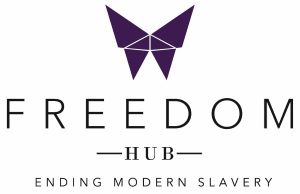Protecting Human Rights in Business during a Volatile Trade and Climate.
Navigating Tariffs, Trade Wars & Supply Chain Disruption Without Compromising People
As geopolitical tensions rise, new tariffs and global trade restrictions are reshaping supply chains and intensifying the pressure on businesses to cut costs, shift suppliers, and act fast. This will easily impact human rights in business.
But in the scramble for economic resilience, there’s a critical risk……
Human rights abuses may once again become hidden casualties.
Global supply chains, already vulnerable to forced labour, debt bondage, and modern slavery, are being pushed into less transparent markets where compliance is harder to verify. For ethical businesses, this moment demands a renewed commitment to upholding human rights, even as cost pressures mount. We should be more passionate and resolute about human rights than ever before!
This article explores ten practical, research-backed strategies companies can adopt to positively manage human rights during this era of global uncertainty.
1. Conduct Dynamic Risk Mapping with Real-Time Data
In times of rapid change, static compliance reports are no longer enough. Businesses need live, data-driven monitoring systems that can:
-
Track geopolitical shifts,
-
Assess supplier risk in real time, and
-
Alert companies to red flags in labour conditions.
According to Melbourne University’s 2024 Freedom Hub Growth Strategy report, tools like RAMP (Risk Assessment and Monitoring Platform) empower organisations to shift from a “response” to “prevention” model, identifying vulnerable suppliers before exploitation occurs. Response is great, but being proactive is more important during these times.
Action Step: Invest in platforms offering ethical risk dashboards and real-time analytics. Partner with experts to assess not just Tier 1 suppliers but deeper tiers where abuse often hides.
2. Prioritise Supplier Relationships Over Price
Trade wars may encourage companies to source from cheaper or politically favourable markets. But shifting to new, unknown suppliers increases modern slavery risks.
Instead, the OECD’s 2023 guidance recommends building long-term, transparent relationships with existing suppliers to ensure stability and mutual accountability during trade disruptions.
Action Step: Re-engage high-risk suppliers with clear expectations, training, and incentives for ethical compliance. Extend contracts where possible, in return for human rights improvements and documentation.
3. Adopt Survivor-Informed Advisory Services
One of the most transformative ways to manage human rights is by integrating the lived experiences of survivors into your risk and compliance strategies.
The Freedom Hub’s Survivor-Informed Advisory service does just this. By helping businesses embed real-world understanding of exploitation into supply chain policies, employee training, and reporting protocols. Unlike many consulting firms focused on check-box compliance, this model connects legal frameworks with empathy-driven impact, increasing both awareness and buy-in across corporate teams.
Action Step: Embed survivor-informed insights into risk frameworks, compliance training, and leadership decision-making to ensure policies are rooted in lived realities.
4. Build an Internal Human Rights Culture Through Moral Education
Tariffs may shift sourcing strategies, but they shouldn’t shift company values. Internal alignment is essential.
A 2022 study published in The British Accounting Review found that companies with strong internal cultures of moral awareness and anti-slavery education were better at identifying and mitigating human rights risks, even under economic pressure.
Action Step: Expand employee training beyond policy. Foster moral literacy through storytelling, survivor testimonies, and inclusive discussions that humanise abstract issues.
5. Communicate Transparently with Stakeholders
Stakeholders, consumers, investors, and regulators are watching how companies behave in times of stress. The latest ACSI ESG Report (2023) shows that ethical supply chain practices remain a key priority for investors, even during downturns.
Transparency builds trust and shields companies from reputational damage.
Action Step: Proactively disclose your human rights strategies, dilemmas, and mitigation efforts in modern slavery statements. Use real stories to show commitment, not just compliance.
6. Vet New Suppliers with a Human Rights Lens
If replacing a supplier becomes unavoidable, it’s crucial to ensure that new partnerships uphold human rights standards.
Here’s how to approach this process:
a. Develop a Comprehensive Supplier Code of Conduct
-
Action Step: Create a supplier code of conduct that outlines expectations regarding human rights, labour standards, and ethical practices. Ensure this document is communicated clearly and agreed upon before engagement.
b. Conduct Thorough Due Diligence
-
Action Step: Implement a due diligence process that includes assessing the supplier’s policies on human rights, labour conditions, and environmental practices. Utilise tools like the Responsible Sourcing Tool’s supplier self-assessment questionnaire to guide this process or The Freedom Hub’s purpose-designed R.A.M.P (Risk Analysis Measurement Platform), which covers all these steps.
c. Ask Targeted Questions
-
Action Step: During the vetting process, inquire about:
-
Their supply chain mapping efforts.
-
Policies on forced labour and child labour.
-
Mechanisms for worker grievance and remediation.
-
Participation in third-party audits or certifications.
-
d. Monitor and Audit Regularly
-
Action Step: Establish ongoing monitoring mechanisms, including regular audits and performance evaluations, to ensure continued compliance with human rights standards.
e. Engage in Capacity Building
-
Action Step: Work collaboratively with new suppliers to build their capacity in understanding and implementing human rights practices, offering training and resources as needed.
By integrating these steps, companies can make informed decisions when selecting new suppliers, ensuring that human rights remain a central consideration even amidst supply chain disruptions.
7. Strengthen Contractual Frameworks to Navigate Tariff Uncertainty
In response to the recent tariff upheavals, strategic contract management has become a critical function for businesses aiming to protect their supply chains and profitability.
The Harvard Business Review article, “How Contracts Can Help Firms Navigate the Uncertainty of Global Tariffs,” emphasises the importance of updating contractual terms to include:
- Force Majeure Clauses: To address unforeseen tariff changes that could impact contractual obligations.
- Tariff Pass-Through Provisions: Allowing for the adjustment of prices in response to new tariffs.
- Termination Rights: Providing options to exit contracts if tariffs make them economically unviable.
Action Step: Review and revise existing contracts to incorporate clauses that offer flexibility and protection against tariff-induced disruptions. Collaborate with legal experts to ensure these provisions are enforceable and align with your business objectives.
8. Leverage AI and Predictive Analytics for Proactive Decision-Making
Artificial Intelligence (AI) has emerged as a vital tool for businesses seeking to navigate the complexities of global trade. AI-driven platforms can simulate the financial impacts of tariff changes, optimise inventory management, and identify alternative sourcing options.
According to a recent article in Vogue Business, AI enables companies to:
- Predict Tariff Impacts: By modelling various scenarios, businesses can anticipate cost fluctuations and adjust strategies accordingly.
- Optimise Inventory Placement: Ensuring products are stocked in regions with favourable trade conditions.
- Enhance Compliance: Automating the classification of goods to prevent costly errors and delays at customs.
Action Step: Invest in AI technologies that offer real-time insights into supply chain dynamics. Train your teams to interpret and act on these insights, fostering a culture of proactive decision-making.
9. Reevaluate Manufacturing Locations and Trading Blocs
The shifting landscape of global trade necessitates a reassessment of manufacturing sites and the trading blocs in which your business operates. A recent HBR article underscores the importance of analysing the feasibility of current manufacturing locations and understanding the implications of trading bloc memberships.
Action Step: Conduct a comprehensive analysis of your manufacturing footprint, considering factors such as tariff exposure, political stability, and access to key markets. Explore opportunities to diversify manufacturing locations to mitigate risks associated with any single region or trading bloc.
10. Maintain Comprehensive Country-of-Origin Documentation
Accurate country-of-origin documentation is crucial for compliance and can help mitigate risks associated with sudden policy changes. The HBR article advises businesses to ensure their organisations are prepared with detailed and accurate documentation.
Action Step: Implement robust systems for tracking and managing country-of-origin information. Regularly audit these records to ensure accuracy and readiness for any regulatory inspections or inquiries.
The Business Opportunity: A New Era of Ethical Leadership and Human Rights
While the rise in tariffs and protectionism presents serious economic challenges, it also presents an opportunity:
to reimagine global business practices around dignity, fairness, and resilience.
Companies that embrace ethical leadership, not just economic adaptation, will emerge stronger, more trusted, and more aligned with the global shift toward Environmental, Social, and Governance (ESG) principles.
The Freedom Hub stands ready to support businesses on this journey. We provide survivor-informed advice, ethical global standards, and practical training that aligns compliance with compassion.
We aim to help you build a business culture where trade friction doesn’t become a human rights crisis. If you’re facing pressure to adjust suppliers or reduce costs, don’t lose sight of the people behind your products.
Visit The Freedom Hub Ethical Business Page to learn how to get started or book a time to discuss how to take another step.
References:
- Dodd, T., Guthrie, J., & Dumay, J. (2022). Management controls and modern slavery risks in the building and construction industry. The British Accounting Review.
- OECD (2023). OECD Due Diligence Guidance for Responsible Business Conduct.
- Freedom Hub (2024). Melbourne University EBS Final Report & Growth Strategy.
- ACSI (2023). ESG Priorities and Investor Sentiment Survey.
- UNSW Human Rights Institute (2022). Broken Promises Report.
- Shih, W. C., & Chua, V. (2025). The Tariff Wars Just Upended Your Supply Chain. Here’s How to Adapt. Harvard Business Review.
- Finkenstadt, D. J., Handfield, R., & Miller, J. (2025). How Contracts Can Help Firms Navigate the Uncertainty of Global Tariffs. Harvard Business Review.
- Vogue Business (2025). Is AI fashion’s answer to tariff turmoil?

